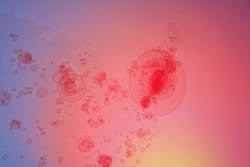GoAigua detecting Coronavirus in communities through wastewater testing
NEW YORK, NY -- GoAigua, a global water technology company that operates more than 300 water utility systems worldwide, has developed a method to analyze the spread of COVID-19 through wastewater. The company uses its Big Data platform to synthesize automatic sampling results with data from utility networks to measure the spread of COVID-19. GoAigua’s ability to detect Coronavirus in wastewater in real time has been proven in Europe and is now available to provide critical assistance to U.S. cities.
Due to widespread lack of reliable testing, it has proved incredibly difficult for governments around the world to monitor cases of the highly infectious novel Coronavirus. GoAigua has engineered a unique and innovative solution: by monitoring wastewater networks, GoAigua can provide regulators and public health officials with a new and effective tool to establish social distancing guidelines or anticipate future spikes in hospitalizations.
A History of Public Health Collaboration
This is not the first time GoAigua has been at the cutting-edge of combining water technology with national public health efforts. In 2017, the company launched a partnership with the Spanish National Research Council (CSIC), a National State Agency for scientific research and technological development, to detect different infectious virus in wastewater, which was successfully completed by the end of 2019.
In March 2020, at the peak of the pandemic in Spain, GoAigua’s parent company (Global Omnium) reengaged with CSIC (The Spanish National Research Council) to adapt and refine the methodology developed over the previous 2 years to detect the amount of Coronavirus present in sewage water. The methodology works, in simple terms, by quantifying genomic units of SARS-CoV2 (Coronavirus) in wastewater. In other words, it measures how much of the virus DNA (or RNA) is in the sewer water, which offers valuable information about how many people in certain areas are infected, even if asymptomatic.
How can the U.S. benefit from this development?
This methodology for scale testing, combined with the company’s unparalleled data integration and analytic tools, allow water utilities to assist local public health agencies with real-time maps of virus spread in different areas of cities and anticipate. GoAigua also offers a mobile-based app for operators to monitor sampling processes and integrate other internal data such as pH or chlorine levels to adjust the results of the analysis. To make such testing even more effective, the company further harnesses its deep experience in managing water utilities to strategically locate sampling in the most efficient locations according to the morphology and topology of the sewer network.
Beginning immediately, GoAigua will partner with several water utilities in the United States to adopt this methodology. This will empower some American cities to become fully capable of conducting massive testing like they are in Spain, where they are partnering with the Regional Government to implement a large-scale surveillance program in the territory.
This significant development in testing, together with GoAigua’s digital platform, will help U.S. communities better monitor the spread of COVID-19 and anticipate future outbreaks.
Pablo Calabuig, CEO of GoAigua for the U.S., noted that this proprietary technology may not provide users with exact figures about the spread of the virus. Nevertheless, it is a remarkably reliable way to show the intensity at which Coronavirus is present in a community. It will become even more crucial in the Fall of 2020, the timeframe in which public health officials are concerned about another peak in the global COVID-19 pandemic.
To learn more, visit goaigua.com.
